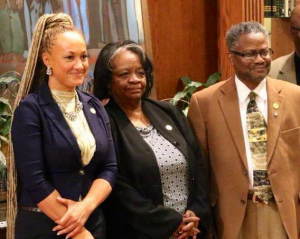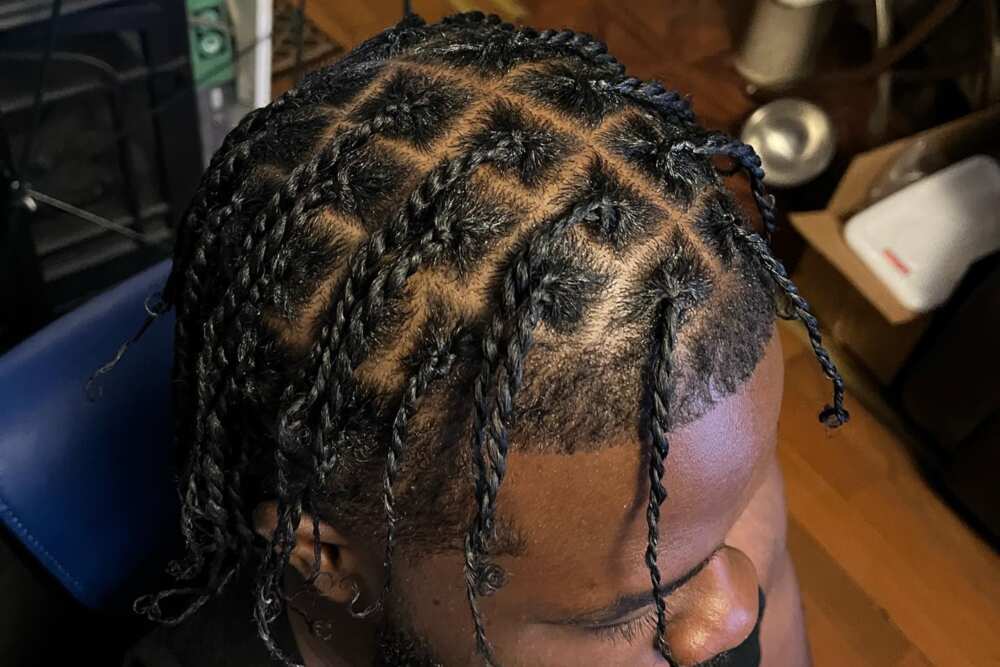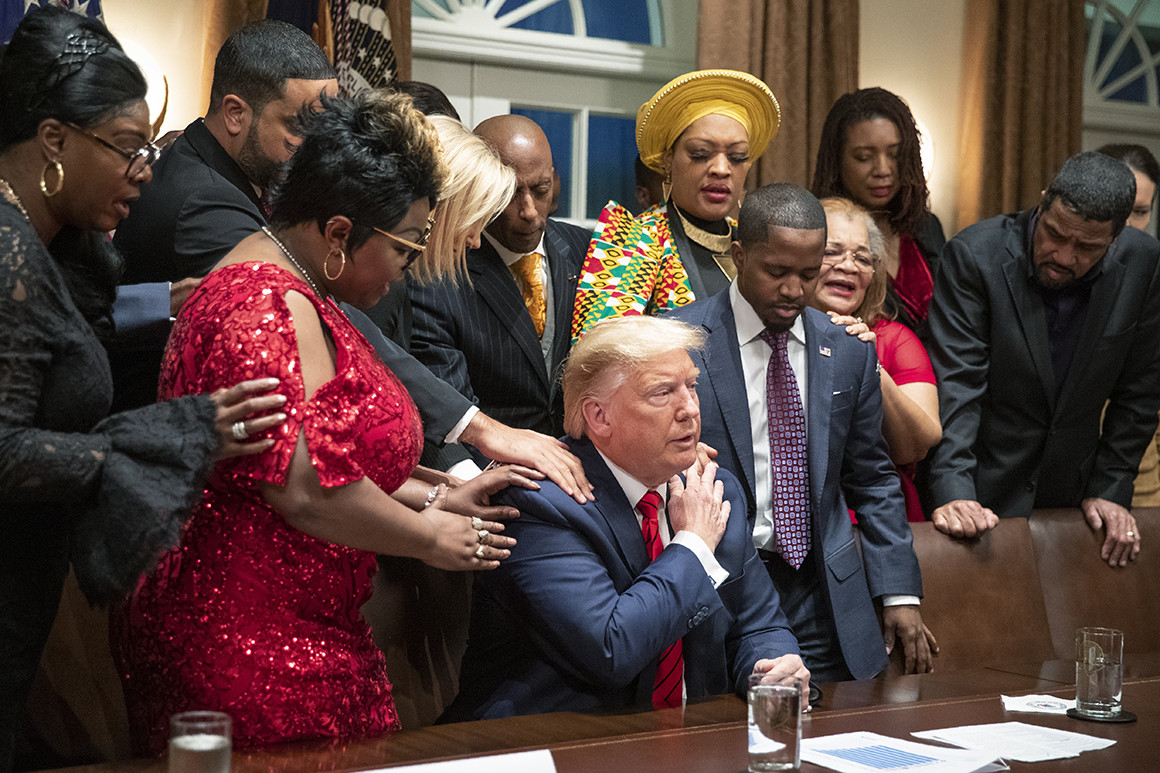(ThyBlackMan.com) Now that the litany of jokes and endless speculation about her adopted ethnicity have begun to subside, the real question remains: will the real Rachel Dolezal please stand up?
As the very vocal and effective president of the Spokane, Washington chapter of the NAACP (black people make up about 4% of the entire state of a little over 7 million people), Dolezal has been a tireless advocate and expert for the black community. Her activism and commitment have been expressed in many local and international news outlets. Her expertise in police-brutality cases has placed her in the same company as Baltimore City State’s Attorney Marilyn Mosby, the same office that filed charges against police officers in the death of Freddie Gray.
As a college student many of her instructors commented on her passion for issues affecting the black community. The passion behind her advocacy ultimately paved the road for her desire to attend one of the most preeminent historically black universities in the country, Howard University, where she attended on scholarship. Even her family acknowledged her commitment.
Her pedigree is unquestionable. Her commitment is irrevocable. There was just one little problem that became ever so present a week ago.
Rachel Dolezal, in all of her bronzed skin and textured hair beauty, turns out to be a white woman. And while there’s nothing inherently wrong, or unique, about being a white person who advocates on behalf of black people, doing so while fashioning yourself as an ethnic representation of a black woman is, well, a little different.
The pictures that have come out of her wearing basket weaves,  braided hair extensions, perms and other hairstyles that are typically reserved for women of color with textured hair, as well as her bronzed skin and generally socially acceptable accoutrements of a black woman (complete with husband, kids and black father) borders on vaudevillian.
braided hair extensions, perms and other hairstyles that are typically reserved for women of color with textured hair, as well as her bronzed skin and generally socially acceptable accoutrements of a black woman (complete with husband, kids and black father) borders on vaudevillian.
The larger issue at play here is the fallacy of the fluidity of identity. Popular society advocates the myth that your identity is as interchangeable as a pair of cheap shoes. The immutable rules of science are considered hateful remnants of the close-minded and unenlightened. As this new diatribe gains footing in the social landscape dissenting voices are outright censured and dismissed as bigoted and Orwellian.
Unfortunately this sentiment has successfully co-opted many of the intellectual voices that advocate for causes that are unique to the black community.
Here’s how it works: The black community has, by and large, always seen gender as something that is fixed and inflexible. Within gender there are roles and behaviors. It is not uncommon for some men to exhibit effeminate qualities, but they’re still a man. The same is true for women, and yet they’re still women.
The new dialogue, as co-opted by other movements, supplants this notion with a more self-centered individualism. You are, ultimately, who you believe you are. Sometimes it’s an effeminized man who believes that he’s really a woman and sometimes it’s a masculinized woman who believes that she’s really a man.
And sometimes it’s a white person who feels in their heart of hearts that they’re really black (trans-racial). After all, what is ethnicity other than a feeling, an emotion, and an experience, or so the argument goes.
This is the danger of the new thought process. Absolutes are thrown out of the window for emotions and feelings. While there’s nothing innately wrong with having an affinity for a group of people or specific type of person, completely and sometimes permanently supplanting your own immutable physical attributes is, at best, unhealthy.
In the end Rachel Dolezal probably falls into this category. She is a white woman who, in order to represent herself as being black, has denied her genetic ethnic type. She has created a new identity that is, in the end, a compete misrepresentation. Even her adopted half-black brother admitted as much in a recent CNN interview.
What is evident is that somewhere along the way her intense emotional connection with black people turned into an unhealthy obsession that caused her to cross the line. Keeping it real doesn’t mean that you have to try to look like the people you advocate for. That’s not real, it’s counterfeit, and that’s the last thing our community needs.
Staff Writer; Steven Robinson
May also visit this talented writer over at; http://noroomtowiggle.wordpress.com/.




















All these interviews appear to be begging the question;
WHAT POSSIBLE VALUE ANY WHITE PERSON COULD SEE IN BEING AFRICAN AMERICAN?
It looks like that’s the question the interviewers really want to ask this woman. The reason they don’t ask it is that it would appear racist and politically incorrect. So much time and money ( billions of dollars) has been invested by some in the white majority to make sure everything black or African American has some connotation of negativity attached to it. Just go to the dictionary and look up the word, black for example. And now here comes along this white woman after having all this negativity dumped on her about blacks wants to seriously be regarded as black. Can you imagine how enormously puzzled they must be, especially those who made and are still making the investment? They are thinking, “Sebastian do you think we should double down on our investment of portraying blacks negatively so as not have this happen again. After all we can’t have the world thinking black is “right” and white is “wrong.”” It is what it is.
http://www.thefixthistime.com
Help me understand..
A man can call himself a woman and the media dares you to say otherwise.
A woman can herself a man and treated like a hero…
On the other, a white woman that wants to identify herself as a black woman is treated like she is a klansman. Is there some advantage to being black in America now that I am not getting?
Excellent article! Raises some crucial questions about identity and the privilege of White supremacy in naming self, hence the societal authority of naming and defining the other as well as the superiority privilege of blurring and eventually redrawing/redefining the lines of reality.
White is the new Black. LOL
If she wants to be a DA, let her.
She’s as funny as all of you.